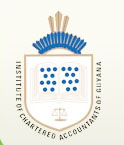The Institute of Chartered Accountants of Guyana (ICAG) says the current income tax law allows for the deductions of both bad and doubtful debts estimated in a trade or business.
The ICAG made the pronouncement in an advertisement that was published in the Sunday Stabroek of February 24th, in which it noted recent press reports on statements attributed to Guyana Revenue Authority (GRA) Commissioner-General Godfrey Statia on the deductibility of bad and doubtful debts for tax purposes.
According to the ICAG, the media reports identify Statia’s view to be that the Corporation Tax only permits deduction of bad debts for tax purposes.
Statia recently told a press conference that the manner in which banks have been calculating their “bad debts” for the purpose of a tax write off was not accurate. “Banks are commercial entities in the business of lending and have bad debts. However, while the financial standards allow banks to make provision for these debts in their accounting, the Corporation Tax Act speaks about bad debt in a different light. We deal with actual bad debt— not because you provide for a bad debt means it will actually be bad,” Statia had explained at a press conference, where he stressed that “you cannot write off that debt as a provision and expect GRA to accept it.”
Noting that Statia’s statements could have implications for non-banking industries, the ICAG pointed out that Section 16(1)(e) of the Income Tax Act, which also applies to the computation of Corporation Tax, provides for the deductions of “both bad debts incurred and doubtful debts estimated” in a trade or business. The law further mandates that any recoveries of bad or doubtful debts be recognised as income when recovered, it added.
The ICAG also noted that the provisions of Section 16(1)(e) have been part of the country’s tax laws since 1929 and have been unchanged since then. “The general interpretation of Section 16(1)(e) is that it permits the deductibility of both bad and doubtful debts. This interpretation… is supported by the GRA’s (and its predecessor bodies) acceptance of such application,” it said.
It added that the provision originated from the 1922 “Report of the Inter-Departmental Committee on income Tax in the Colonies” and the wording is not unique to Guyana as Trinidad and Tobago, for example, has the same provision in its legislation and legal precedent supporting the deductibility of doubtful debts.
The ICAG noted that businesses and trades of all forms encounter uncertainty in the collection of debts and prudent accounting practice requires that provisions are held against debts which are considered doubtful. “Entities that apply International Finan-cial Reporting Standards (IFRS) would have been guided by International Accounting Standard 39 and, more recently, by International Financial Reporting Standard 9, in determining provisions against doubtful debts. “In the absence of any contrary tax legislation or associated regulation, the provisions for doubtful debts so determined would have been claimed as deductions for tax purposes by such entities. IFRS have been applicable in Guyana for twenty years,” it added.
While noting that the role and function of the GRA are recognised and respected, the ICAG said it would encourage that full consideration of all relevant factors be given to matters under the Authority’s examination.
With Statia indicating that banks owe approximately $4 billion in corporation taxes due to the miscalculation of debts for tax write offs, the Guyana Association of Bankers Incorporated (GABI) has signaled its intention to challenge the authority’s assessments.
In an advertisement, the GABI had objected to statements made by Statia and informed that it has “engaged experienced, legal and accounting minds to pursue this matter to the fullest extent on its behalf.”
While the GABI stress-ed that it has been advised that members have met their tax obligations and is confident that its position is robust and indisputable, Statia had also told this newspaper that he stood by his assessment.
Statia also acknowledged that GRA previously accepted the calculations made by the institutions. “We are contributory negligent because we allowed it to go on for years, so people were of the opinion that they were doing the right thing,” he had said, while reiterating that the law only allows the authority to accept actual bad debt as a write off, once banks can show that sufficient action was taken to recover debt, including whether there was a guarantee for the debt.
The issue was first raised at the Annual General Meeting (AGM) of Banks DIH Limited, whose Chairman, Clifford Reis, noted that on December 20th, 2018, the company received Notices of Assessment from GRA for Citizens Bank, claiming additional corporation taxes of $534,416,000.
In the case of Citizens Bank, GRA has disallowed the company’s claims for deductions for impairment losses on financial assets in relation to the years of income ended 30th September, 2010 to 2012 and 2014 to 2016 inclusive.
The GABI has, however, claimed that commercial banks and non-bank financial institutions have made all taxation payments to the government as required by law.
“Financial statements are prepared, reviewed and finalised in keeping with domestic, regional and international accounting and taxation standards as well as Bank of Guyana regulatory guidelines,” it said before adding that “the approach currently employed by the commercial banks has always been accepted by the relevant authority and this has been well-documented and confirmed by the [GRA].”






